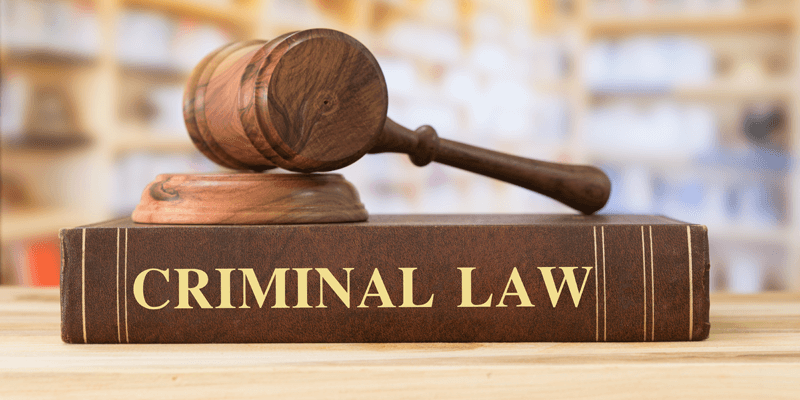Legal Discipline: Upholding Justice and Ensuring Order, What is the purpose of penalties in legal discipline?
Legal discipline refers to the system of rules, regulations, and enforcement mechanisms established by a society to maintain order, resolve disputes, and ensure justice. It serves as the foundation for a functioning legal system and plays a crucial role in upholding societal norms and protecting individual rights. In this article, we will explore the meaning of legal discipline, its importance, and the key components that contribute to its effectiveness. So, let’s delve into the realm of legal discipline!
Introduction
Legal discipline encompasses the rules, procedures, and institutions that define and enforce legal standards within a society. It ensures the maintenance of order, the protection of individual rights, and the resolution of conflicts through a system of justice.
Understanding Legal Discipline
Legal discipline involves the application of laws and regulations to regulate behavior, maintain social order, and provide a framework for resolving disputes. It encompasses both criminal and civil matters, covering various aspects of human interactions and societal norms.
The Importance of Legal Discipline
Legal discipline holds several key importance:
1. Order and Stability: It establishes a framework that ensures order, stability, and predictability within society, allowing individuals to live harmoniously.
2. Protection of Rights: Legal discipline safeguards individual rights, providing a mechanism for seeking justice and protection against unfair treatment or harm.
3. Resolution of Disputes: It offers a structured process for resolving conflicts and disputes, facilitating peaceful resolutions and reducing the potential for violence or retaliation.
4. Deterrence and Prevention: Legal discipline acts as a deterrent, discouraging individuals from engaging in illegal activities by imposing penalties and consequences for violations.
5. Promotion of Equality: It upholds the principle of equality before the law, ensuring that everyone is subject to the same legal standards and treated impartially.
Components of Legal Discipline
Legal discipline encompasses several key components that work together to uphold justice and maintain order:
1. Laws and Legislation
Laws are the primary foundation of legal discipline. They are created through legislative processes and define the rights, obligations, and prohibitions within a society. Laws provide a framework for acceptable behavior, outline the consequences of violations, and serve as a guide for legal decision-making.
2. Law Enforcement Agencies
Law enforcement agencies, such as the police, are responsible for enforcing laws and maintaining public order. They play a crucial role in upholding legal discipline by investigating crimes, apprehending offenders, and ensuring compliance with the law.
3. Judicial System
The judicial system is responsible for interpreting laws, resolving disputes, and administering justice. It includes courts, judges, and legal proceedings that provide a fair and impartial forum for the resolution of conflicts. The judicial system ensures that legal discipline is applied in a consistent and just manner.
4. Legal Professionals
Legal professionals, including lawyers and judges, are essential in upholding legal discipline. Lawyers provide legal advice, represent individuals in legal proceedings, and advocate for their clients’ rights. Judges impartially apply legal principles and make decisions based on the evidence and arguments presented.
5. Penalties and Consequences
Penalties and consequences are integral to legal discipline. They serve as deterrents and ensure accountability for violations of the law. Penalties can range from fines and probation to imprisonment, depending on the severity of the offense and applicable laws.
Ensuring Fairness and Justice
Fairness and justice are fundamental principles of legal discipline. It is essential that legal systems are designed to ensure equality before the law, due process, and access to justice for all individuals. Transparency, impartiality, and the protection of individual rights are paramount in upholding legal discipline.
Challenges and Criticisms
While legal discipline is crucial, there are challenges and criticisms associated with its implementation:
1. Access to Justice: Ensuring equal access to justice for all individuals, regardless of their socio-economic status, remains a challenge in some legal systems.
2. Complexity and Delay: Legal processes can be complex and time-consuming, leading to delays and hindering timely resolution of disputes.
3. Inequality in Legal Representation: Disparities in legal representation can affect the fairness of legal outcomes, particularly for disadvantaged individuals.
4. Overcriminalization: Some argue that certain laws are overly broad or vague, leading to the criminalization of behaviors that should be addressed through alternative means.
Conclusion
Legal discipline is essential for maintaining order, upholding justice, and protecting individual rights within a society. Through laws, law enforcement agencies, the judicial system, legal professionals, and penalties, legal discipline provides a framework for regulating behavior, resolving disputes, and ensuring fairness. By upholding legal discipline, societies can foster a just and orderly environment where individuals can live with security and confidence in the rule of law.
FAQs (Frequently Asked Questions)
Q1: What is the difference between legal discipline and social discipline?
Legal discipline refers specifically to the system of rules, regulations, and enforcement mechanisms within a society, while social discipline encompasses broader societal efforts and mechanisms to promote cooperation and maintain order.
Legal discipline establishes the framework for social order by defining acceptable behavior, providing consequences for violations, and ensuring that individuals are held accountable for their actions.
Q3: What role do legal professionals play in legal discipline?
Legal professionals, such as lawyers and judges, are instrumental in upholding legal discipline. They provide legal advice, representation, and ensure the fair and impartial administration of justice.
Q4: What is the purpose of penalties in legal discipline?
Penalties serve as deterrents and consequences for violating the law. They aim to discourage individuals from engaging in illegal activities and ensure accountability for their actions.
Q5: How can legal discipline be improved?
Improvements to legal discipline can be made by addressing issues of access to justice, streamlining legal processes, promoting equality in legal representation, and ensuring fairness and transparency within the legal system.


Comments are closed.